Simple ways to treat dry skin allergies
Last updated on - Dec 30, 2019, 20:54 ISTShare fbsharetwsharepinshare
11/19Petroleum jelly

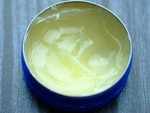
Petroleum jelly can help heal the skin in many ways. The jelly, also called mineral oil, can provide the skin with an extra layer of protection. If you have dry skin or suffer from skin irritation, apply some of this product on the affected area. It has a soothing effect on the skin and helps lock in the moisture.
Picture Courtesy: Google Images
12/19Use some coconut oil

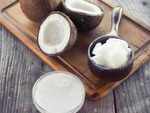
Coconut oil works as a natural moisturising agent since it has a ton of emollient properties. These can soothe your skin and can keep it hydrated and moisturised for long. What's best is that coconut oil is extremely safe to use so you can also use it on the most sensitive parts of your body.
13/19Take oatmeal baths

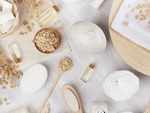
This is pretty simple to do. Take one cup of oatmeal and then put it in a food processor to chop it up into tiny pieces. You can either stir this powder in your bath water or you can tie it up in a washcloth and dip it in your bath water so that the pieces don't get stuck in your hair.
14/19Use gloves

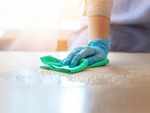
We're certain you're aware that bacteria can transfer onto your skin through your hands. So, try to use gloves when you're doing household chores like washing the dishes or dusting so that you don't end up transferring any pollutants to the rest of your skin.
15/19Change your shower temperature


Sometimes we end up taking showers with water that's either too hot or too cold. This can lead to irritation on your skin since our bodies aren't used to extreme temperatures. Try to take a bath in water that is warm or room temperature and it might help your skin situation.
16/19Apply cool cloth on your skin


Heat can cause the skin to lose moisture and oils. A cool and wet cloth can offer some relief and make your skin feel a little better. Take cool showers instead of hot baths. A few minutes with cool water can keep the skin hydrated. You should also avoid harsh skin care products. Sometimes they don't sit well with the skin and cause it to go dry and itchy.
Picture Courtesy: Google Images
17/19You may need a lifestyle change


Our skin is a reflection of what we choose to eat. The right nutrition can also help treat certain skin conditions like eczema, psoriasis, and dermatitis. Stress and junk food can often cause skin issues to become worse. So if you want your skin health to get better you may need a lifestyle change. That means taking stock of what is in your kitchen and examine the foods that may be causing you do develop dry skin issues.
Picture Courtesy: Google Images
18/19Medication


If your dry skin issues are not getting better with natural remedies and lotion, it is time to consult with a dermatologist. The right medication can do your skin a lot of good and treat the condition before it becomes worse. Steroids are often prescribed in severe cases. There are also other types of medications likeHydroxyzine (Atarax), Diphenhydramine (Benadryl), and Cetirizine (Zyrtec). However, it is important to consult with a doctor to find out what it is you have and how to best treat it.
Picture Courtesy: Google Images
19/19Moisturize

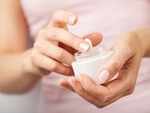
The key to tackling dry skin is to make sure you moisturize regularly. An effective way to get the most out of this skincare routine is applying the product to damp skin. Look for moisturizers that contain urea or lactic acid if you have extremely dry skin as it helps to keep the skin hydrated for a long time. Vaseline, Aquaphor, and Cetaphil lotion are some products you can try that have been found to be effective.
Picture Courtesy: Google Images



